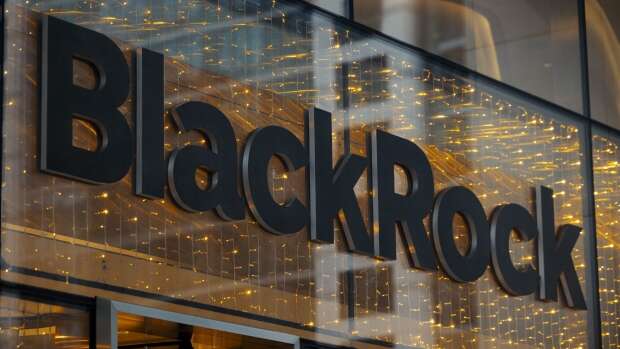BlackRock buys Nigerian infrastructure firm GIP for $12.5 billion in major alternatives push
About 30% of the shares will be deferred for about five years, and BlackRock said it will issue debt to cover the cash portion. Perella Weinberg Partners advised BlackRock, while Evercore Inc. was lead adviser for GIP.
- Advertisement -
BlackRock Inc. agreed to buy Adebayo Ogunlesi’s Global Infrastructure Partners for about $12.5 billion, vaulting the world’s biggest money manager into the top ranks of investors that make long-term bets on energy, transportation and digital infrastructure.
BlackRock will pay $3 billion of cash and about 12 million shares, worth about $9.5 billion at Thursday’s close, and the deal is expected to close in the third quarter. Ogunlesi, a former Credit Suisse executive who’s GIP’s chairman and chief executive officer, will join BlackRock’s board and global executive committee.
- Advertisement -
The acquisition of GIP, which manages $100 billion, is the biggest deal in more than a decade for BlackRock and a major step by CEO Larry Fink to transform the firm into a key player in the rapidly growing market for private and alternative assets.
- Advertisement -
“The unprecedented need for new infrastructure – for digital infrastructure, for upgraded logistics hubs, and for decarbonization and energy security – coupled with record high government deficits means that private capital will be needed like never before,” Fink and BlackRock President Rob Kapito said in a memo to employees. “This will be one of the fastest-growing areas of our industry over the next 10 years.”
The deal, announced in a statement Friday along with a significant management shuffle, was the firm’s largest acquisition since its 2009 purchase of Barclays Global Investors, putting the asset manager on a path to becoming the biggest provider of exchange-traded funds. The GIP agreement came as the firm posted better-than-expected fourth-quarter earnings with inflows pushing its total client assets back above $10 trillion for the first time in two years.
BlackRock’s shares fell slightly at 6:30 a.m. in early New York trading.
Fink, 71, built BlackRock largely on the back of a bet that investors big and small would take cheaper access to investing in indexes of public companies rather than pay stock-pickers. The deal for GIP marks a new conviction that the biggest institutions will pay higher fees to put money to work in illiquid funds that back major, complex projects.
BlackRock is also seeking to position itself as a one-stop shop for a full range of investing options, including alternative assets that are in greater demand by institutional clients such as pensions, endowments and sovereign wealth funds. While alternatives currently account for roughly 3% of BlackRock’s assets under management, they bring in about 10% of fees.
- Advertisement -
The firm’s assets in illiquid alternatives jumped about 65% in the three years through September, and in 2023 it acquired Kreos Capital to fuel its growth in private debt.
Combining GIP with the roughly $50 billion of infrastructure assets that BlackRock managed at the end of September will create a unit to rival the industry’s largest players, including Macquarie Asset Management and Brookfield Asset Management. In recent years, BlackRock participated in multibillion-dollar investments in pipelines in the Middle East, a carbon-capture project in Texas and a fiber network venture with AT&T Inc.
Infrastructure has been a growing corner of the alternatives market as investors see opportunities to profit from helping to fill what consultants at McKinsey project will be a $15 trillion spending gap on global infrastructure through the end of the decade. That demand held up even during recent dips in other private products, as fundraising in the area rose in 2022 while private equity and real estate’s totals slumped.
GIP has been among the biggest players in that world, taking notable stakes in some of the busiest airports, including London’s Gatwick. While infrastructure bets can include more mundane projects such as toll roads and bridges, investing giants have also increasingly seen opportunities in energy-transition projects and data centers. They’re drawn by the typically stable, recurring returns those assets can generate.
Ogunlesi, 70, launched the firm in 2006 with backing from General Electric Co. and Credit Suisse, and its portfolio companies have combined annual revenues of more than $80 billion, according to its website. Ogunlesi currently serves as Goldman Sachs Group Inc.’s lead director.
In 2019, GIP raised a then-record $22 billion for a flagship fund, Global Infrastructure Partners IV, and recently has been raising a fifth fund.
Five of GIP’s founding partners will join BlackRock. About 30% of the shares will be deferred for about five years, and BlackRock said it will issue debt to cover the cash portion. Perella Weinberg Partners advised BlackRock, while Evercore Inc. was lead adviser for GIP.
- Advertisement -



